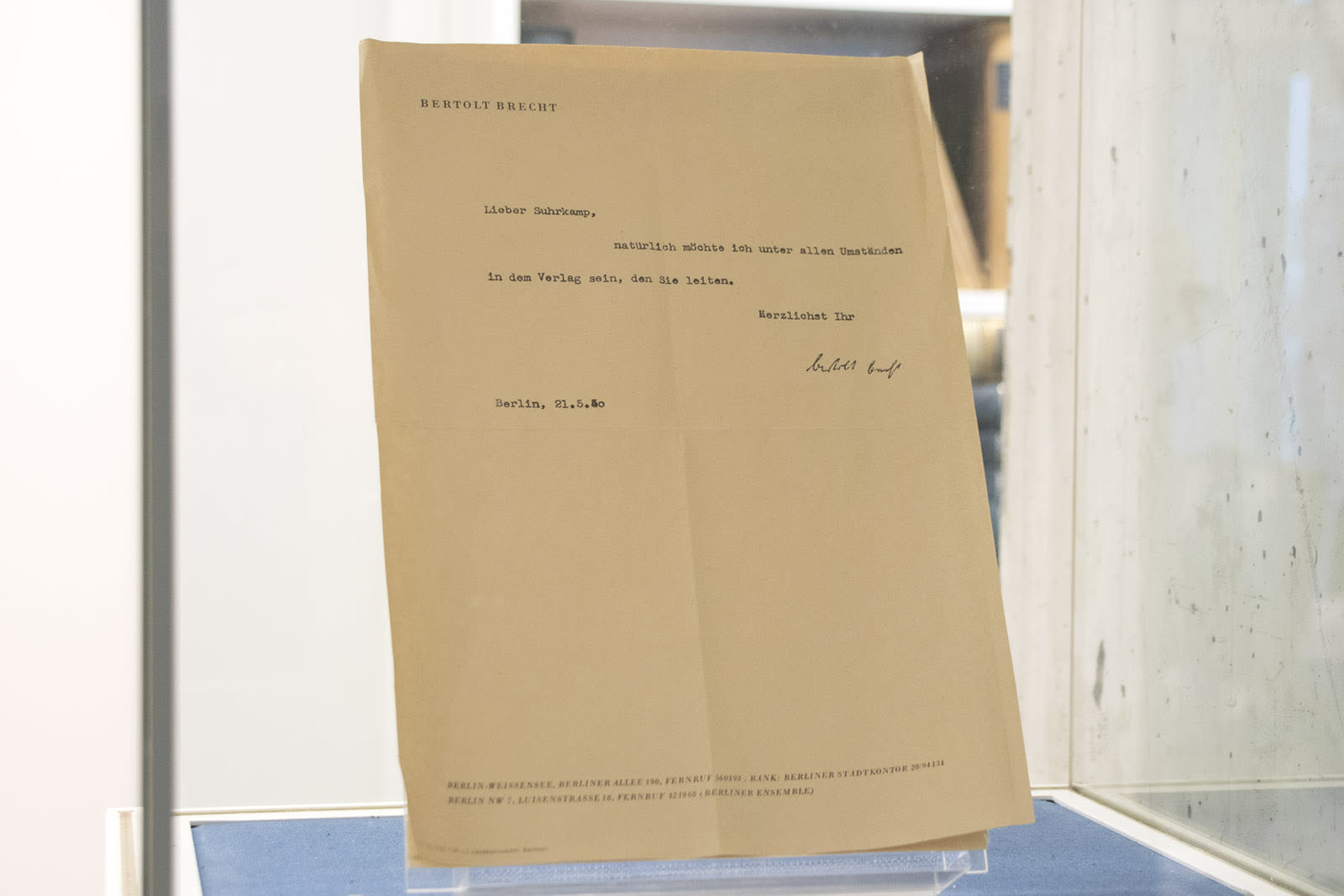Bertolt Brecht: 125th Birthday on February 10, 2023
News
Bertolt Brecht was born on this day 125 years ago. He is considered one of the most important German-language playwrights and poets of the 20th century.
Bertolt Brecht was born in Augsburg on 10 February 1898 and died in Berlin on 14 August 1956. From 1917 to 1918 he studied Natural Sciences, Medicine and Literature at the Ludwig Maximilian University in Munich but was forced to interrupt his studies in 1918 because he was deployed as a medical orderly in a military hospital in Augsburg. Brecht began writing plays as a student. From 1922 he worked as dramaturge at the Munich Kammerspiele. From 1924 to 1926 he was a director at Max Reinhardt’s Deutsches Theater in Berlin. In 1933, Brecht left Berlin with his family and friends and fled via Prague, Vienna and Zurich to Denmark, later to Sweden, Finland and the USA. In addition to plays, Brecht also wrote articles for several émigré magazines in Prague, Paris and Amsterdam. In 1948 he returned from exile to Berlin, where he worked as an author and director until his death. Bertolt Brecht’s texts and plays are of timeless relevance. Widely translated, they are compulsory reading in schools and are part of the standard repertoire of classical and modern stages around the world.
Bertolt Brecht and Suhrkamp Verlag

Bertolt Brecht plays a central role in the history of Suhrkamp Verlag. In a short letter written on 21 May 1950, he assured the founder of the publishing house, Peter Suhrkamp, that his works would from then on be published by the newly founded publishing house: »Dear Suhrkamp, by all means I want, of course, belong to the publishing house that you direct. Yours sincerely, Bertolt Brecht.« Because of its great significance for Suhrkamp Verlag, the letter is on display in the publishing house to this day.
Suhrkamp Verlag is the proud publisher of Brecht’s collected works. A project begun on Brecht’s 90th birthday in 1988 and brought to completion on his 100th birthday in 1998, Brecht’s oeuvre was published in the 30 volumes of the »Große kommentierte Berliner und Frankfurter Ausgabe«. The Collected Works contain all first prints or early versions of Brecht’s works, sometimes numerous versions of a text (including, for example, the three versions of Life of Galileo) alongside annotations. The 14-volume edition of Brecht’s notebooks is the first authentic publication of all of Bertolt Brecht’s notebooks and address books; the volumes contain facsimiles alongside exact transcriptions. The added comments reconstruct Brecht’s writing process, while the electronic edition presents important additional contextual material online: www.brecht-notizbuecher.de